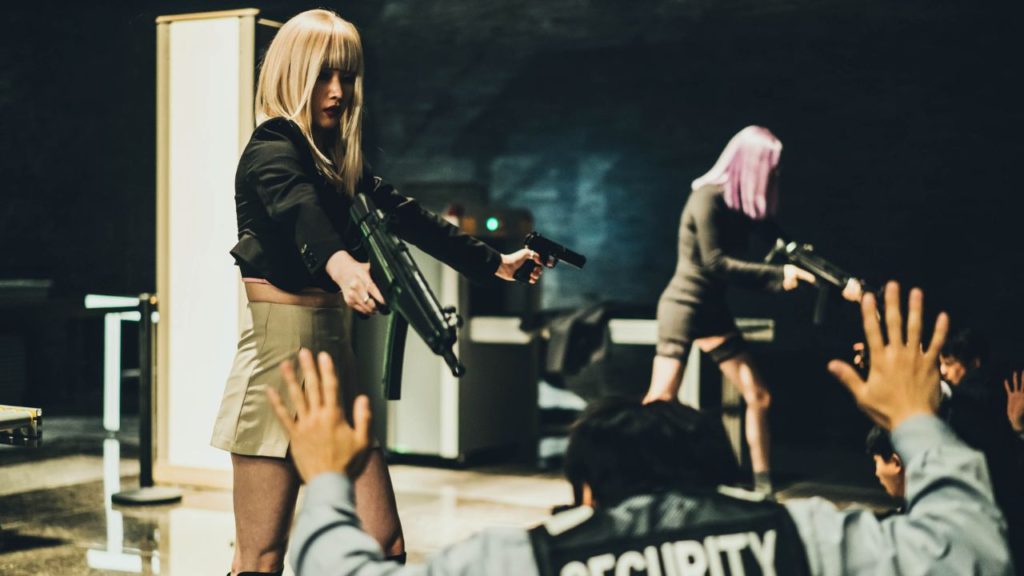Why? That was first the question I had when Netflix announced in November 2020 that they were making a Korean version of Money Heist. They knew that yet another one of their flagship shows was coming to an end, and what better way to get the most out of the brand than by remaking it as a K-Drama. ICYMI: Hollywood studios and streamers are finally catching on to the notion that Korean content is big business. Money Heist: Korea made sense. But the whole endeavor also felt very cynical.
The original Money Heist was, in many ways, perfect. An exquisite blend of drama and tension that was cunningly plotted and cleverly written, with characters who were lovable and loathsome in equal measure, and full of soapy narrative twists that left us gasping and agape. Which is why any remake of the series would need to fulfill the following criteria of being both sufficient and necessary, of either doing something different, or improving on the original in some way.
Money Heist: Korea does not. It is a facsimile. A faded copy. A beat for beat remake that is utterly unnecessary and completely dispensable. Especially since a better version of this is right there for you to watch in all its glory.
Goodbye Beautiful

Set in 2025, this version of Money Heist begins with something of a geopolitical twist. The two Koreas are working towards reunification, of which the first steps include the creation of a single currency. A Joint Economic Area is set up in what used to be the Joint Security Area of the DMZ, with “equal opportunities” for all, as well as a brand new mint that’s just waiting to be heisted.
It’s a bold and exciting setup but one without any real follow through. It is superficial. It is set dressing. There is an occasional hint of commentary regarding the complex relationship that exists between the peoples of the North and South, but it very quickly descends into trope. The dynamic between the two negotiators for example, one from the North (Kim Sung-oh) and one from the South (Lost’s Kim Yun-jin), is no different from the kind of conflict we’ve encountered in any number of movies and television procedurals. (See: The Bridge, Confidential Assignment, Steel Rain, etc.) Whatever glimmer there is with regards to an interesting new social and political take is frustratingly overshadowed by an almost scene for scene retread of the original.
And even that doesn’t feel quite as well thought out. A side-by-side watch of the first episode of both shows will leave you wondering how Money Heist: Korea manages to do half as much in twice the runtime. The series doesn’t lean into the idea of the Professor and his class in quite the same way. (The original, which had them sitting at classroom desks for their first briefing, was a clever gag that also served to set up the unlikely character of the Professor.) There is no fun aside regarding their choice of masks. Even Tokyo’s introduction in this one feels unnecessarily overwrought.
All of this is made doubly disappointing by the fact that Money Heist: Korea features one of the most impressive lineups of Korean talent ever. Jeon Jong-seo (Burning, The Call) has the strongest screen presence of any actress, anywhere. Squid Game’s Park Hae-soo and Parasite’s Park Myung-hoon are both delightful in their villainy. And yet, mostly because of they’re forced to work within the confines of the original series, their performances end up feeling like imitations of what has come before. These versions of Tokyo, and Berlin, and Denver, and Moscow, may have different backstories, but none of that seems to change their characters in any significant way. Talk about a wasted opportunity.
Who Then Is Money Heist: Korea For?

We have no idea who this remake is for. It’s definitely not for those of us who have already watched all five seasons of the original. And it can’t possibly be just for a Korean audience either. I mean, this isn’t the dark days of the 1980s where we had no access to content from across the world. Netflix’s whole proposition is about celebrating movies and TV shows from everywhere, irrespective of language or location. They’re constantly crowing about their dubbing, and subtitling, and how accessible their content is. Meaning that there are 51 million South Koreans who can already watch a much better version of this.
Maybe it’s specifically for an audience who want to see their favorite Korean idols do a money heist. But if that’s the case, then is this anything more than just cosplay?
Money Heist: Korea is the very definition of wasted potential. There is so much culture and context to mine. There is so much story that could have been derived from its premise. This should have been an opportunity to grow the franchise. It could have added to the cultural commentary that Squid Game and Train to Busan did so well. Instead it is just more tedious output from a soulless algorithm.









Follow Us